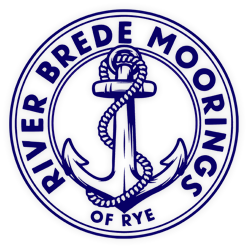Enviromental Policy
Our policy is to look after the environment, and to promote clean rivers and healthy seas. From the beginning of May 2008, we can offer crane-out and scrub-off facilities, to remove marine growth and anti-foul paint on vessels up to 18 tonnes. The pollutants and contaminants are contained for safe disposal, and not just washed back into the river to pollute. All contaminated bilge water, oils, and parts are recycled, or handed over to licensed organizations to be dealt with correctly. The protection of the Marine Environment is everybody's responsibility
Be aware, and make others aware, of the threats to our water-ways and seas, and the serious effects that pollutants can have on the marine environment.
Within the boat-yard, the use of pressure cleaning equipment for the initial rinse-off when a vessel is lifted from the water generates industrial waste water; this process should be restricted to an area with an impermeable surface such as sealed concrete, with a bund which allows the waste water to be contained and collected. The paint solids and other hazardous material can then be separated, and removed by a licensed haulier.
Best Management Practices for Materials
Anti-freeze
When drained from an engine, anti-freeze should be stored in a clearly marked container on an impervious surface and under cover. Anti-freeze should be re-used whenever possible (e.g. as freeze protection for bilges or plumbing). Antifreeze must never be disposed of into storm drains, or into a septic system.
Spent Lead-Acid Batteries
These should be stored on an impervious surface, under cover and protected from frost. All lead-acid batteries must be collected and disposed of by an approved recycler.
New Oil
This includes new engine oil, transmission fluid, hydraulic oil, and gear oil. These petroleum products should be kept in clearly labeled, sound containers on an impermeable surface, and covered in a manner that will prevent storm water from contacting the container. Leaking containers should be emptied promptly upon detection, the contents transferred to a sound container, or disposed of safely as "waste oil." Leaking containers should be discarded to avoid possible re-use.
Waste Oil
This includes waste engine oil, transmission fluid, hydraulic oil, and gear oil. Waste oil should be stored in a clearly marked, sound container on an impermeable surface, and covered in a manner that will prevent storm water from contacting the container. Oil spills should be prevented from leaving the area by means of a beam or retaining structure. Waste oil should be removed from the site by a permitted waste oil transporter.
Oil or Fuel Filters
Oil or fuel filters should be crushed or punctured, and hot-drained by placing the filter in a funnel over the appropriate waste collection container to allow the excess petroleum product to drain out. Drained filters should be collected, and recycled when possible. Only filters that have been crushed or hot-drained to remove all excess oil can be disposed of as solid waste.
Mercury Lamps and Switches: Spent fluorescent bulbs
All mercury lamps and mercury switches are hazardous waste. Spent lamps should be collected and stored safe from breakage until a sufficient quantity has accumulated for recycling.
Fibre Reinforced Plastic
The use of epoxy and polyester resins for repair or construction of boat hulls can generate significant amounts of waste. Common solvents such as acetone or methylene chloride evaporate easily and should be kept in tightly covered containers. Small amounts of unused resins may be catalyzed prior to disposal as solid waste. However, catalyzation is not an acceptable method of disposing of outdated or superfluous resin stores. These materials must be treated as hazardous waste and disposed of by a licensed waste haulier.
Glue and Adhesives
Residual amounts of glues and adhesives remaining in empty caulking tubes may be disposed of as solid waste. All other glue and adhesive-related waste must be examined for hazardous waste characteristics. Non-hazardous glues and adhesives in liquid form cannot be disposed of as solid waste, and should be used for their originally intended purpose.
Paints, Waste Petrol or Diesel, Kerosene and Mineral Spirits
These products should be stored in sound containers on an impermeable surface, and covered to prevent storm water from contacting the container. Each container should be clearly labeled, and storage locations should conform to local Fire Codes. Whenever possible, waste petrol or diesel should be filtered, and used as fuel.The disposal of any waste products from these materials should only be performed by a licensed waste transporter. These waste products should not be allowed to evaporate or be poured on to the ground, disposed of in storm sewers, septic systems or discharged to surface waters.
